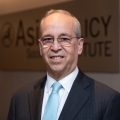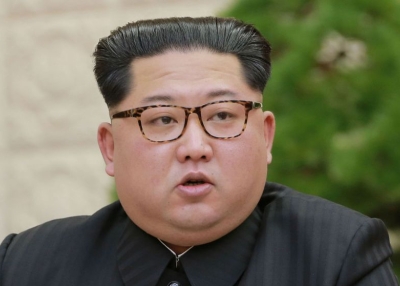Future Scenarios: What To Expect From a Nuclear North Korea
Issue Paper
After decades of broken promises and failed diplomatic efforts, North Korea has become a nuclear power. Kim Jong Un’s charm offensive over the past year, as seen in summit meetings with U.S. President Donald Trump and other leaders, has enabled him to shed his pariah status without shedding his nuclear weapons. While Kim has frozen testing, he continues to expand the country’s nuclear arsenal, defy and evade Security Council resolutions, and is now getting support from China in his call for sanctions relief.
In the wake of the failed February 2019 Hanoi Summit, North Korea is warning of a return to testing by year’s end. But even if Kim were to reverse course and agree to freeze his entire nuclear and missile program, North Korea’s capacity to threaten the U.S. and its allies with a formidable arsenal would be undiminished. What’s worse, Kim seems to be turning to a powerful new weapon of mass destruction to gain leverage.
Asia Society Policy Institute (ASPI) Vice President for International Security and Diplomacy Daniel Russel asserts in this ASPI issue paper that North Korea’s next weapon of choice is likely to be cyber: a high-impact, low-cost, and low-risk digital-age weapon that North Korea already can and does use to steal money, hack secrets, and terrorize nations. In the 5G era, developed nations such as the United States are particularly vulnerable. North Korean cyber-attacks have already succeeded in crippling critical overseas infrastructure and stealing hundreds of millions of dollars, reducing the efficacy of international sanctions.
Future Scenarios: What to Expect from a Nuclear North Korea details the consequences of North Korea’s slow but steady trajectory toward acceptance as a nuclear power. The report highlights the urgency of focusing U.S. national security efforts against the threat from North Korea’s rapidly growing cyber warfare capability. Russel writes that the combined threat from North Korea’s nuclear and cyber programs can only be reduced through “coercive containment” — a multi-pronged strategy of diplomacy, defense, deterrence, and denial that will require substantial cooperation among key international players.
About the Author

Daniel Russel is Vice President for International Security and Diplomacy at the Asia Society Policy Institute. A career member of the Senior Foreign Service at the U.S. Department of State, he most recently served as the Assistant Secretary of State for East Asian and Pacific Affairs. He served at the White House as Special Assistant to the President and National Security Council Senior Director for Asian Affairs, where he helped formulate President Obama’s strategic rebalance to the Asia Pacific region.

